InsiderMark aka InsiderMark.net: Is it Safe for Trading? The Truth Exposed (Update 2024)
InsiderMark aka InsiderMark.net is a scam broker. It uses various tactics to defraud consumers including false advertising and predatory business practices.
Beware of this scam.
The following review will shed more light on how this scam works and what shady tactics it employs:
Exposing the InsiderMark Scam:
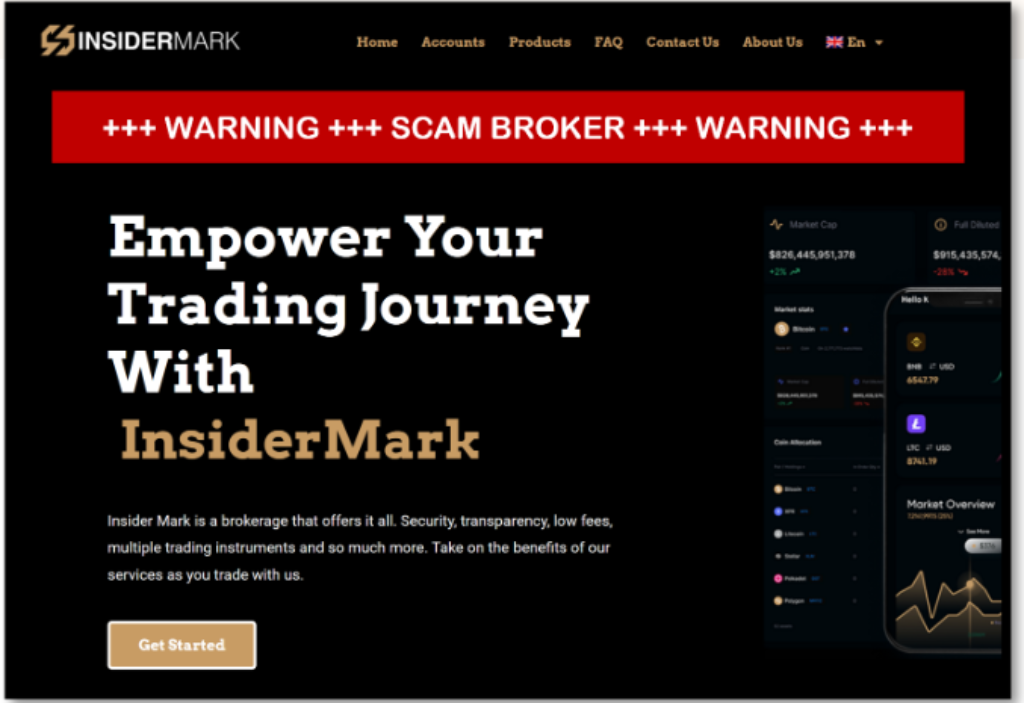
It is still common practice to advertise dubious cryptocurrency projects like Bit IQ on Google. Scammers use fabricated celebrity news articles to advertise Bit IQ, YuanPay, and other dubious cryptocurrency ventures as a secure way to make quick money with cryptocurrencies. Additionally, these fraudulent actions are hunting for future InsiderMark broker scam victims. After logging into Bit IQ, one is immediately taken to the InsiderMark payment page. Stay away to protect your financial security.
What is Cryptocurrency?
A digital type of money known as cryptocurrency has no tangible counterparts, such as coins or bills, and only exists electronically. Electronic tools like cell phones, PCs, or specialist Bitcoin ATMs are frequently used in cryptocurrency transactions. Even though Bitcoin and Ether are well-known examples, there are many other virtual currencies on the market, and more are constantly being created. These cryptocurrencies offer distinctive features and applications in the fields of technology and finance, operate on decentralized networks, and are defined by their digital nature.
Insidermark: Key Data
| Trading name | InsiderMark |
| Activity | Scam broker scheme |
| Domain | www.insidermark.comwww.insider-mark.comwww.insidermark.net |
| Legal entity | not disclosed |
| Jurisdiction | St. Vincent & The Grenadines |
| Contact data | su*****@in**********.com |
| Payment options | Credit/debit card, crypto |
| Payment facilitators | not disclosed |
| Authorization | No |
More scammers like Insidermark
A fraud, ITGSolution Broker!
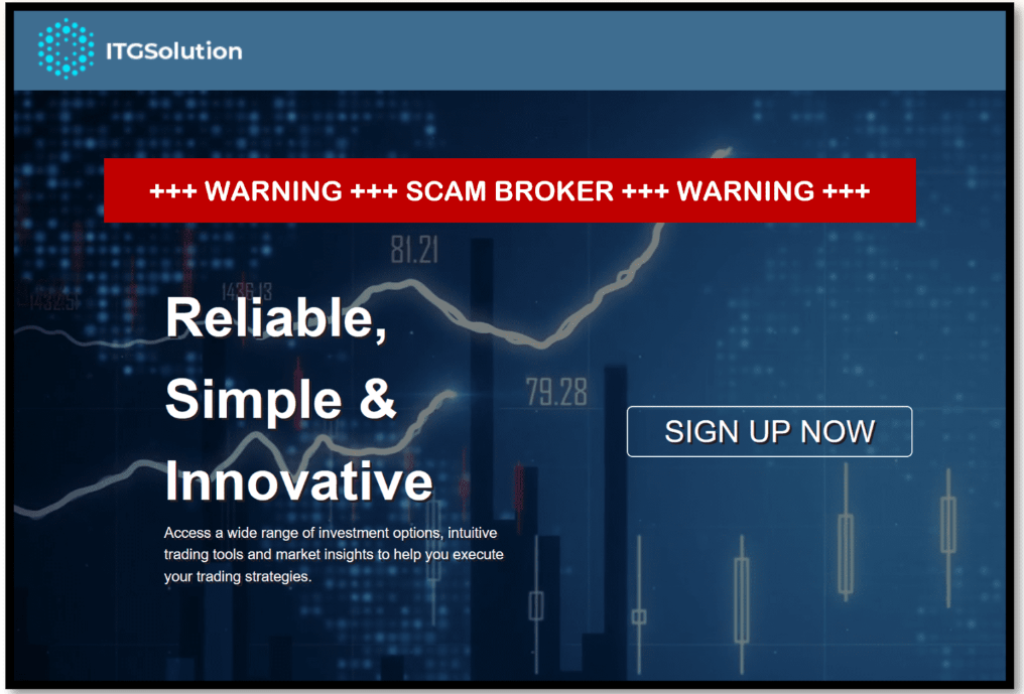
The Spanish regulator CNMV has issued a warning on the broker fraud ITGSolution. The operator is allegedly Dev Global LLC, a business registered in St. Vincent and the Grenadines and founded in August 2021. The payment processors for the fraud are PraxisPay, which accepts credit and debit cards, BP Wallet, and Jeton. The con has been running since January 2023, mostly focusing on victims in Canada and Europe. Keep your distance and protect your financial stability.
Key Data
| Trading name | ITGSolution |
| Activity | Scam broker scheme |
| Domain | https://itgsolution.net |
| Legal entity | Dev Global LLC (est Aug 2021) |
| Corporate agents | Euro-Caribbean Trustees Ltd |
| Jurisdiction | St. Vincent & The Grenadines |
| Payment options | Credit/debit card, bank wire |
| Payment facilitators | Praxis (cashier)PraxisPay, BP Wallet, Jeton |
| Authorization | No |
| Compliance rating | Black |
| Warning | CNMV |
Alert! Federalinter operates as a Ferratum Bank clone with an MFSA license for online banking!
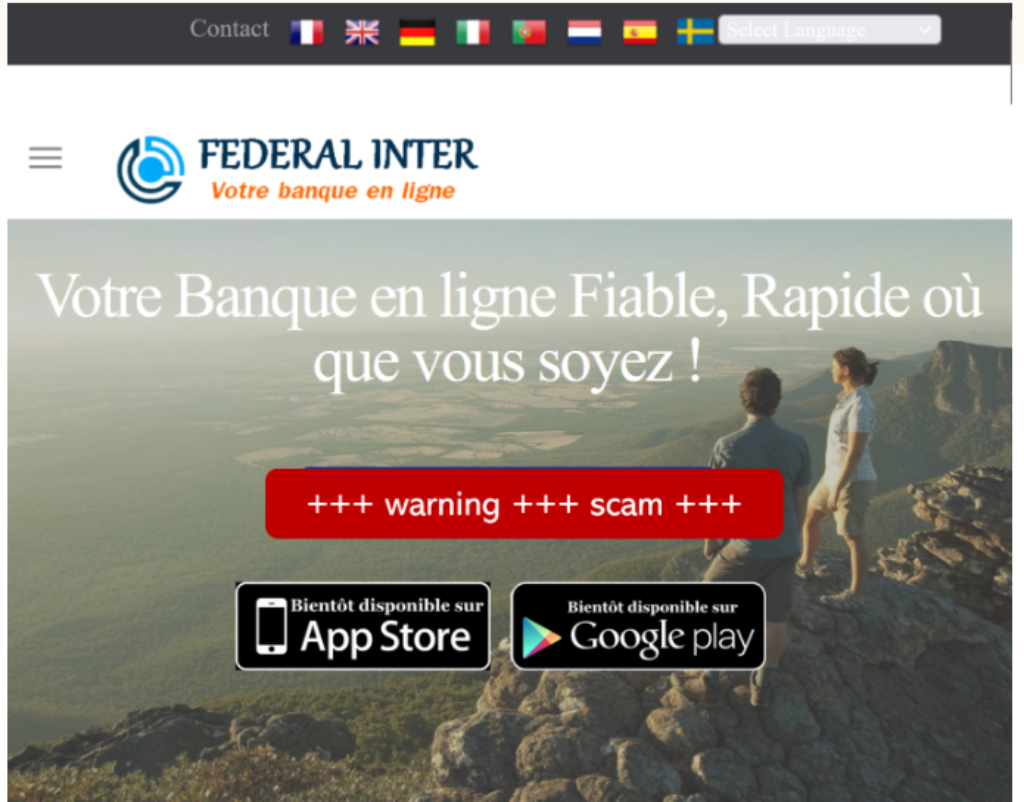
Federal Inter plc is a fictitious company that claims to be regulated and the Malta Financial Services Authority (MFSA) has issued a warning about it. By pretending to be Ferratum Bank plc, a credit company that is approved by the MFSA, the clone’s website deceives the general public. According to the MFSA, which warned the public of this, Federal Inter is neither a Maltese-registered business nor is it licensed to provide any financial services in or out of Malta. The con targets consumers using eight different languages, including English, French, Spanish, German, Italian, and Swedish.
The website www.federalinter-groupe.com, which appears to be a replica of the website of the actual MFSA-regulated firm, is NOT linked with Ferratum Bank plc, according to the Maltese regulator. The general public is therefore warned not to engage in any transactions or dealings with the phony firm.
Key Data
| Trading name | Federal Inter plc |
| Domain | https://www.federalinter-groupe.com |
| Clone of | Ferratum Bank plc |
| Jurisdiction | Malta |
| Warning | MFSA |
A scam story
The poorly designed copy of Federal Inter just aims to steal potential customers’ personal information. After registering, one is requested to upload copies of their ID cards and utility bills to open a bank account. The first reason they want your data is so that scammers can use, abuse, or sell it.
Using stolen client data, scammers routinely register on cryptocurrency websites or sign up as customers of payment processors. Stay away from the area and protect your data against theft and illegal use. Save a lot of time, aggravation, and money.
Fake DMCA Notices
Insidermark and other con artists abuse DMCA notices. They utilize it as a barrier to shelter themselves from any unfavorable information.
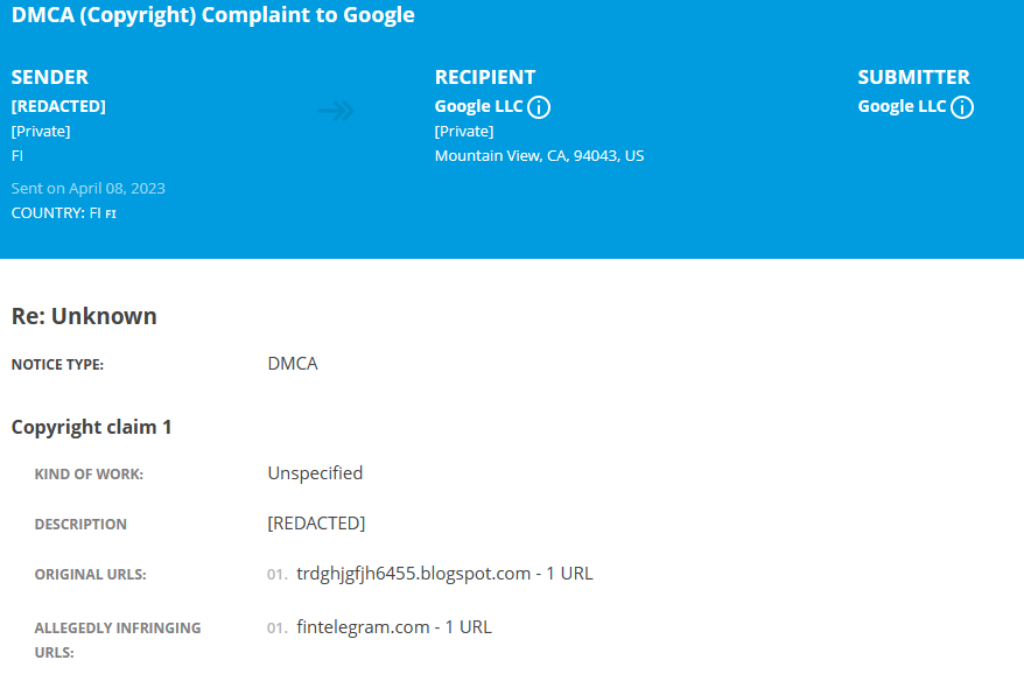
What exactly is the DMCA?
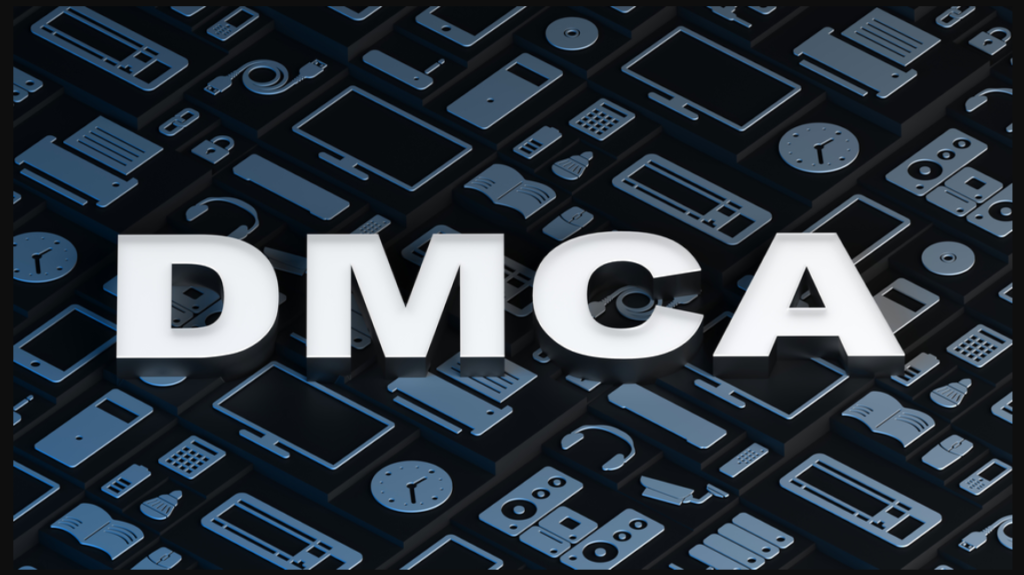
Two International Intellectual Property Organization agreements from 1996 are implemented by the Digital Millenium Copyright Act (DMCA), which was passed into law in the United States in 1998. (WIPO). The development and distribution of methods, technologies, or services (often referred to as “digital rights management” or “DRM”) intended to circumvent limitations on access to copyrighted information are prohibited.
It also makes the act of avoiding access control illegal, regardless of whether there is real copyright infringement. Additionally, the DMCA toughens the penalties for online copyright infringement.
The DMCA reduced internet service providers’ liability for copyright infringement by their customers after it was unanimously approved by the US Senate on October 12, 1998, and signed into law by President Bill Clinton on October 28, 1998.
It increased the application of copyright. The primary innovation of the DMCA in the area of copyright is the exclusion of Internet service providers and other intermediaries from direct and indirect liability. This exception was made official by the European Union in the 2000’s Internet Commerce Directive. With the introduction of the Information Society Regulation in 2001, the WIPO Copyright Treaty of 1996 was implemented in the EU.
A website or search engine that hosts or links to content that infringes on copyrights gets alerted by a DMCA takedown notice. Over the past few years, Google has averaged receiving about 90,000 DMCA-related takedown requests each year. These takedown requests are regularly made by the music and film industries, and they are usually legal. Unfortunately, some groups and people take advantage of the DMCA system. Shady attorneys and online reputation management firms submitted over 100 erroneous DMCA requests to Google to remove evidence of prior wrongdoing from the internet.
This new “tactic” comprises the creation of phony news websites that claim ownership of the offending content that the real news website is hosting. Given the number of DMCA claims it receives every day, it is challenging for Google to sift out all of these fake requests.
Scammers like InsiderMark take advantage of this fact. As you saw earlier, InsiderMark posted a fake DMCA and even got away with it.
Real or fake?
Critics claim that the Digital Millennium Copyright Act (DMCA) has been misused. Others claim that the growth of bogus claims of copyright infringement has been a serious problem with the DMCA Act. Critics frequently use brief comments from the target of their criticism in texts or films to contextualize their arguments. This usage, which is discussed in more detail below, is without a doubt legal and fair.
However, the person receiving the criticism will file a DMCA takedown notice claiming that the video infringes on his copyright because the text or video excerpts from his videos were used. These accusations are baseless, and they simply serve to limit free expression and shield the target from criticism.
Abuse of the anti-circumvention provision
Volkswagen broke the DMCA in 2015 to hide the vehicle emissions scam. If the DMCA had not prohibited access to the program, a researcher with authorized access to Volkswagen’s software might have discovered the code that changed how the cars performed in testing.
Effects on Innovation and Competition
In at least one court case, open-source software projects have used the DMCA to combat software conversion (i.e., license violations) involving the removal of copyright notices. Jonathan Bailey’s Plagiarism Today alleged that the DMCA had eliminated the incentive for Kindle Direct Publishing, a division of Amazon, to create unique procedures for screening submitted books for plagiarism and copyright infringement before permitting their publishing. Amazon “doesn’t do much to vet the books it publishes,” according to Bailey. Plagiarism is not even mentioned in its KDP help files.
This implies that almost anything may be published without too much trouble, regardless of the quality or, in this case, originality, of the material. Many people accuse Amazon of not checking works for even the most elementary issues, such as formatting, and layout. Amazon periodically removes content after getting complaints, but until then, they’re happy to let the books sell and the money roll in. Additionally, in Amazon’s opinion, this is legal.
They are safeguarded by the Digital Millennium Copyright Act (DMCA) and additional laws, such as Section 230 of the Communications Decency Act, thus they are virtually exempt from any obligation to research or confirm the works they publish. They are legally permitted to produce and sell books, both physical and digital, regardless of whether they are plagiarizing, breaking copyright laws, or engaging in any other illegal activity.
Fake DMCA blogs of Insidermark
Below is the link used by InsiderMark to perform its fake DMCA:
- http://trdghjgfjh6455.blogspot.com/







